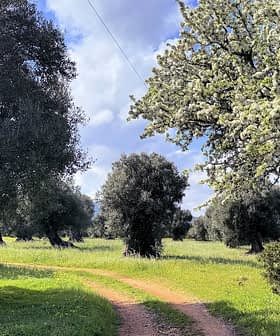
On the September 19 the European Parliament in Brussels hosted an event titled “towards a better understanding of the consumption of olive oil.” It was inspired by Copa Cogeca, the EU agricultural union representing over 13 million European farmers and 38,000 cooperatives.
The aim was to promote the consumption of high quality extra virgin olive oil by ensuring that consumers are provided with transparent information. In order to achieve this, a system of rules and quality criteria must be adhered to and promoted.
Parliament Members Luis Manuel Capoulas Santos (Pt, S&D) and Sergio Silvestris (I, EPP) outlined the fundamental measures to better inform consumers of the quality of the product and of the different categories and qualities that exist for olive oil, such as understandable labels, and the clear indication of the origin of the product.
Copa-Cogeca Secretary General Pekka Pesonen observed “In spite of the difficult market situation, producers and cooperatives have made a great deal of effort and made big investments to improve the quality of olive oil, yet this has neither been recognized by the market, nor consumers. It is crucial that the Commission moves ahead with implementing the EU Commission Action Plan to improve the viability and competitiveness of the EU Olive Oil Sector. Farmers need better returns from the market in order to improve the sustainability of this type of production, especially as it is mainly found in areas hit by the economic crises.”
The key event was also the occasion to ratify Italy’s traceability achievement, which mainly results from the Unaprol activity, Italy’s largest consortium of olive oil producers.
According to the EU regulations on producers’ associations, the European Union is to allocate at least 12 percent of the resources to finance the traceability measure. Italy has achieved its goal, through the 600 Unaprol olive producers’ networks, which group together seven thousand certified companies, and over 70 percent of the oil producing networks listed in Italy.
The initiative came a few weeks after the agreement on the reform of the Agricultural Policy dating back to June 26, which will go into effect January 1, 2014.
As Massimo Gargano, president of Unaprol, pointed out, “this agreement offers new tools and opportunities for olive oil.” He added that “with respect to the initial propositions, Italy was able to improve some critical elements, and more precisely the greening commitments, which did not acknowledge the environmental role of olive groves and the internal agreement. This made it possible to choose a smoother transition from the historical system of aid to a new one, which allocated them in a more balanced fashion.”
This can also have positive consequences on markets, where the battle is focused on convenience, and one of the main strategies – also backed by Unaprol – is e‑commerce. In 2012, the e‑commerce segment generated a sales turnover of about €305 billion ($412 billion), with a 20 percent increase over the previous year.
Pietro Sandali, general manager of Unaprol, remarked, “thanks to high quality standards, to the technology development and to the correct implementation of communication strategies, the national oil production sector represented by Unaprol can already count on a widespread and certified traceability of the tastes typical of the Italian territories. This system represents a challenge, but also a great opportunity to overcome the markets crisis.”








